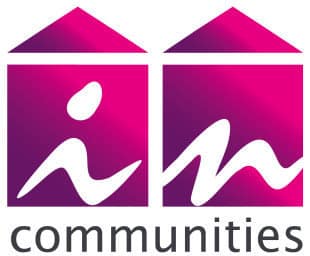Should You Integrate Your CRM & ERP Systems?
We all know, customers are becoming more and more savvy and expecting more for their money. Delivering the ultimate customer experience through optimised touchpoints is essential for gaining a competitive advantage.
In the mission to keep customers happy, a functional and fully adopted CRM system is a must for managing customer data. Your CRM platform will manage your business processes and log all exchanges with your customer. Many customer facing organisations will also use an ERP system for internal business functions, such as finance, sales, marketing and demand planning with the supply chain. The question is… can this all sit in one application and what is the compromise? Or should they be integrated to work together? Either way you want a fully automated solution where reliable information is shared to create a single source of truth.
The answer to this lies in your bespoke business requirements. Every business is different and the advantages for one organisation might not be enough for another. There are many benefits of integration, and it is possible to get these systems working together through an application integration method. But it is not a straightforward process – it can take a long time and you will need your data to be cleansed and up to date before you attempt it.
What would the benefits be?
Shared knowledge & better planning
If your sales teams can access warehouse information whilst talking to customers, they will be able to manage expectations and forecasts will become more accurate. Giving your sales teams an insight into margins and material costs will help them educate the customers and build relationships. Allowing all departments to access the information available on the platforms offers more control and visibility.
Eliminating duplication
If your CRM offers you a sales forecasting tool, it is likely you are repeating some of this in your finance department through the ERP and duplicating record keeping. Map out the information you are reporting on and see if integrating the platforms will streamline business processes, remove duplication and drive efficiency gains.
Need help with your CRM strategy
Nine Feet Tall can…
- Shape your strategy
- Select the right system and partner
- Manage your implementation
- Improve user adoption
- Ensure you ahve the right data at your fingertips
- Deliver the benefits
- Optimise your CX
Increased productivity
If your forecasting becomes more accurate and inefficient reporting processes are removed, your teams will become more productive and have more time to focus on sales conversions and growing the business.
Standardised data
Nobody wants to input into two systems and sales orders are usually inputted into the CRM, but the ERP will generate the invoice and fulfil the order through shipment and delivery. If the data across the systems isn’t standardised and aligned there can be discrepancies in orders placed and fulfilment. Creating a single source of truth with standardised data means less friction and a better customer experience. You should be able to regularly synchronise data once the integration is successful.
Knowing Your Customer
Having access to and using all the data, including invoicing and delivery information obtained from the ERP, will help to give you a fully rounded view of your customer. This extra insight obtained through synchronised records might help you to predict future purchases and buying habits.
So why isn’t everyone doing this?
The benefits are clear, but the reality sometimes falls short of the vision.
IT Resource
Integrating two complex systems will drain the IT budget and take resource away from delivering BAU. If you are trying to run a helpdesk and deliver other projects, finding the necessary resource and won’t be easy.
The IT Ecosystem
Many organisations will have other systems which feed off the data from the ERP and CRM. Integrating the platforms can cause a knock-on effect which is sometimes overlooked. Mapping the skeleton of systems and their connections will paint a picture of the complexities involved.
Data Anxiety
Bad data can foil the whole operation, if inaccurate information is used during the integration, it means the whole system will lack consistency and this can impact the customer. Moreover, there are sometimes reports of “fudged” sales data in a CRM system which could have costly implications if that data is automatically transferred into the ERP.
Issues with legacy systems
If your ERP or CRM is built with custom code it may be difficult to integrate and scale up. This means that synchronisation won’t be possible unless the legacy system is fully replaced which will be a large and complex project in itself.
So, to be or not to be? The integration is something to consider, and help is always on hand to guide your thinking and decision making. We have years of experience when it comes to digital transformation and integration complex change projects. For more information speak to EstherM@NineFeetTall.com















